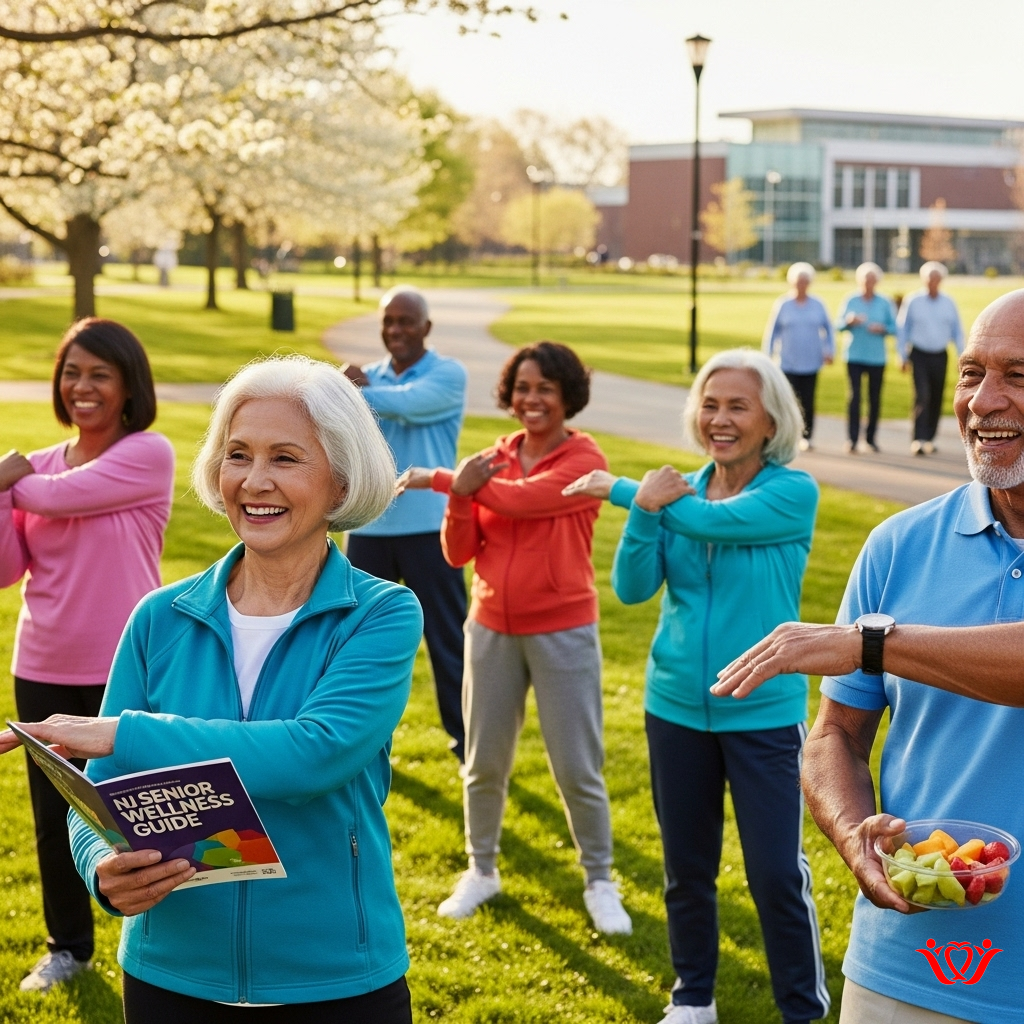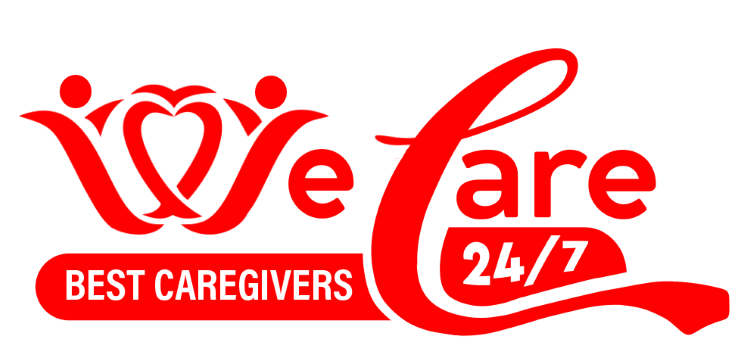Safe Exercise for Seniors: Your Step-by-Step Activity Guide

Empowering New Jersey Seniors: A Guide to Safe and Effective Exercise at Home
As we navigate life’s later stages, maintaining physical activity becomes increasingly important. For seniors throughout New Jersey, and for adult children and caregivers supporting them, understanding how to engage in safe exercise can significantly enhance well-being and independence. This comprehensive guide from your local New Jersey home-care agency outlines practical, safe steps for seniors to stay active, whether they are living independently or receiving in-home support in the Garden State.
Why Exercise Matters for New Jersey Seniors and Their Caregivers
Regular physical activity offers a wealth of benefits for older adults. It’s about more than just physical fitness; it encompasses mental clarity, emotional resilience, and social engagement. For New Jersey seniors, staying active can mean enjoying our beautiful state parks, engaging with community events, or simply maintaining the ability to perform daily tasks with ease.
Key benefits include:
- Improved Balance and Coordination: Reducing the risk of falls, a significant concern for seniors. The CDC reports that falls are the leading cause of injury and death among older Americans.
- Enhanced Strength and Mobility: Making everyday activities like walking, carrying groceries, or climbing stairs easier.
- Better Cardiovascular Health: Supporting heart health and circulation.
- Stronger Bones and Joints: Helping to manage conditions like osteoporosis and arthritis.
- Boosted Mood and Cognitive Function: Alleviating symptoms of anxiety and depression, and sharpening mental acuity.
- Increased Energy Levels: Enabling seniors to participate more fully in life.
For caregivers of individuals with disabilities, adapting exercises to suit varying needs ensures that everyone, regardless of their physical challenges, can experience the positive impacts of movement.
Consult Your Doctor First: A Foundational Step for New Jersey Residents
Before beginning any new exercise routine, it is essential for New Jersey seniors to consult with their primary care physician. Your doctor can assess your current health, review any existing medical conditions, and recommend appropriate activities or modifications. This personalized advice ensures your exercise plan is safe and effective, minimizing any potential risks.
Share your exercise goals with your doctor and discuss any concerns you may have. This proactive step helps build a secure foundation for your fitness journey.
Elements of a Safe Senior Exercise Program
A well-rounded exercise program for seniors should incorporate several types of activities to address different aspects of physical health:
1. Cardiovascular (Aerobic) Exercise
These activities elevate your heart rate and improve stamina. Aim for at least 150 minutes of moderate-intensity aerobic activity per week, or about 30 minutes, five days a week. Examples include brisk walking, swimming, dancing, or cycling.
2. Strength Training
Strength exercises build muscle mass, which naturally declines with age. Include strength training for all major muscle groups at least two days a week, with at least one day of rest in between sessions. Use light weights, resistance bands, or your own body weight.
3. Flexibility and Balance
Flexibility exercises improve range of motion and reduce stiffness. Balance exercises help prevent falls and improve stability. Incorporate these activities most days of the week, even daily.
Your Step-by-Step Activity Guide for New Jersey Seniors
Here’s a practical guide to get started, with modifications for various abilities. Remember to listen to your body and stop if you feel any pain.
Step 1: The Warm-Up (5-10 minutes)
A gentle warm-up prepares your muscles and joints for activity, reducing the risk of injury. Perform slow, controlled movements.
- Arm Circles: Gently rotate your arms forward and backward.
- Leg Swings: Hold onto a chair for support and gently swing one leg forward and backward.
- Neck Tilts: Slowly tilt your head side to side, then ear to shoulder.
- Ankle Rotations: Rotate your ankles clockwise and counter-clockwise.
Step 2: Low-Impact Cardiovascular Activities (20-30 minutes)
Choose activities that are gentle on your joints while still raising your heart rate.
- Brisk Walking: Explore your New Jersey neighborhood or local park. If outdoor conditions are not ideal (e.g., icy sidewalks in winter), consider walking in an indoor mall or on a treadmill.
- Chair Marching: While seated, lift your knees up and down as if marching. Add arm movements for a full-body workout.
- Water Aerobics: Many New Jersey community centers offer senior-friendly water classes, which provide excellent resistance with minimal impact.
- Cycling: A stationary bike offers a safe, low-impact cardio option.
Step 3: Strength Training (15-20 minutes)
Perform 8-12 repetitions of each exercise for 1-3 sets. Use light hand weights, resistance bands, or body weight.
- Chair Stands: Sit on a sturdy chair and stand up without using your hands, then slowly sit back down. Repeat. This strengthens leg muscles.
- Bicep Curls: Hold a light weight (or a can of soup) in each hand. Keep elbows close to your body and curl the weights towards your shoulders.
- Wall Push-ups: Stand facing a wall, about an arm’s length away. Place your palms flat on the wall at shoulder height. Bend your elbows to lean towards the wall, then push back to the starting position.
- Resistance Band Rows: Loop a resistance band around a sturdy object (like a door handle). Hold both ends of the band and pull your elbows back, squeezing your shoulder blades together.
Step 4: Flexibility and Balance Exercises (10-15 minutes)
Hold each stretch for 20-30 seconds. For balance exercises, use a chair or wall for support if needed.
- Heel-to-Toe Walk: Walk in a straight line, placing the heel of one foot directly in front of the toes of the other foot. This is excellent for balance.
- Single Leg Stand: Stand on one leg, holding onto a support if necessary. Start with short durations and gradually increase.
- Calf Stretch: Stand facing a wall, place hands on the wall. Step one leg back, keeping the heel down and feeling the stretch in your calf.
- Triceps Stretch: Reach one arm overhead, bend your elbow, and let your hand fall behind your head. Use your other hand to gently push the elbow further back.
Step 5: The Cool-Down (5-10 minutes)
Gentle stretches help your heart rate return to normal and improve flexibility.
- Repeat some of the gentle stretches from the warm-up, holding them a bit longer.
- Focus on deep breathing to relax your body.
Making Exercise a Habit in New Jersey
Consistency is key. Here are tips to integrate exercise into your daily life:
- Start Small: Begin with 10-minute sessions and gradually increase duration and intensity as your fitness improves.
- Set Realistic Goals: Celebrate small victories, like walking an extra block or holding a stretch longer.
- Find a Buddy: Exercising with a friend or family member in your New Jersey community can provide motivation and accountability.
- Vary Your Routine: Try different activities to keep things interesting and work various muscle groups.
- Incorporate into Daily Life: Take the stairs instead of the elevator, park further away, or do heel raises while waiting in line at the grocery store.
Special Considerations for NJ Seniors and Caregivers
For individuals with disabilities or limited mobility, exercise can still be adapted. Chair exercises, water therapy, and gentle stretching can provide significant benefits. Always ensure a safe environment, free from tripping hazards.
Important reminders:
- Stay Hydrated: Drink plenty of water before, during, and after exercise, especially during warm New Jersey summers.
- Listen to Your Body: Pain is a signal to stop. Modify or rest if you feel discomfort.
- Dress Appropriately: Wear comfortable clothing and supportive shoes.
- Prioritize Safety: Ensure clear pathways, good lighting, and proper form during exercises.
For caregivers, encouraging and facilitating physical activity is a significant part of providing comprehensive care. A New Jersey home-care agency can assist by providing professional caregivers who can safely support seniors with their exercise routines, offer transportation to local senior fitness programs, or simply provide companionship during walks around the neighborhood or local park.
Finding Support in New Jersey
New Jersey offers numerous resources for seniors looking to stay active. Many county senior services, community centers, and local YMCAs provide tailored fitness programs. Organizations like the New Jersey Department of Human Services Division of Aging Services offer information and resources for older adults. You might find classes focusing on balance, chair yoga, or low-impact aerobics right in your town, from Bergen County to Cape May.
Our home-care agency is dedicated to supporting the health and independence of New Jersey seniors. Whether you need assistance with daily living activities, require companionship for walks, or seek professional guidance on safe exercise routines at home, our compassionate caregivers are here to help. We understand the unique needs of seniors and individuals with disabilities in our communities.
Embracing a safe and consistent exercise routine is a powerful step towards a healthier, more vibrant life for New Jersey seniors. With careful planning and the right support, staying active can be a rewarding and enjoyable part of your daily routine. Take the first step today towards a stronger, more balanced tomorrow.



